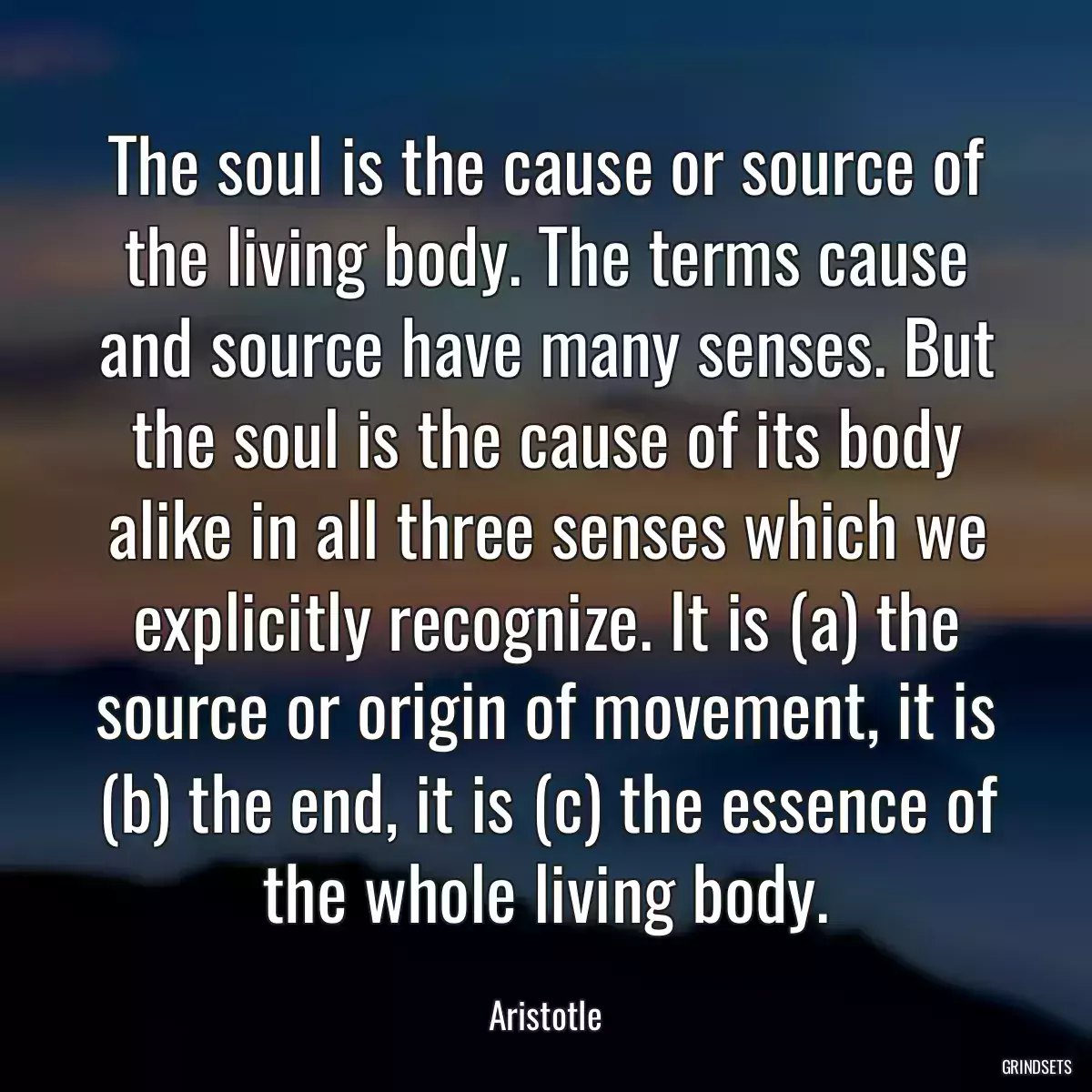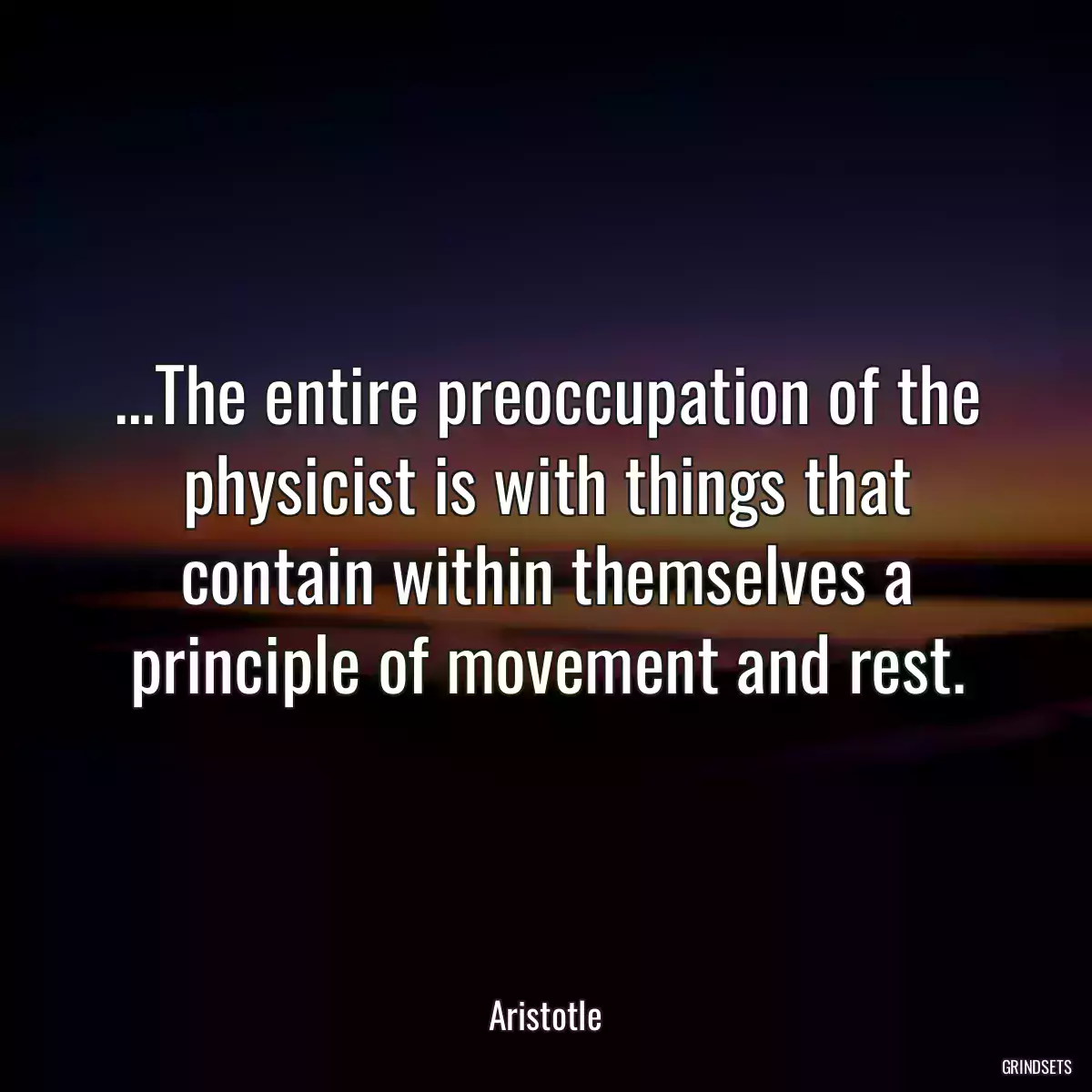
The soul is the cause or source of the living body. The terms cause and source have many senses. But the soul is the cause of its body alike in all three senses which we explicitly recognize. It is (a) the source or origin of movement, it is (b) the end, it is (c) the essence of the whole living body.

